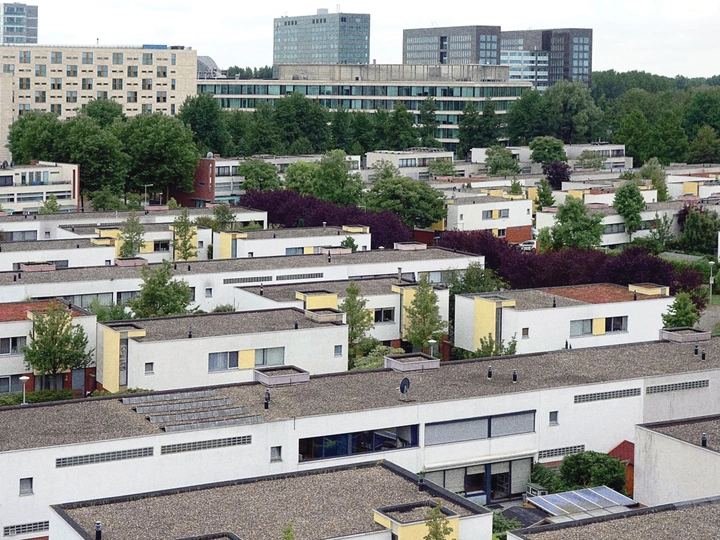Power Coalition

Thomas Krall
Superworld is a spatial design practice co-led by Thomas Krall and Maxime Cunin.
Sw design and prototype built futures that catalyze transformation through collective lived experiences. It seeks to reimagine the present and envision a responsible future, both in its exceptional and everyday. To overcome obstacles to change, Sw focuses on fostering shared built realities. This entails envisioning new organizational paradigms for energy, matter, and land within the built environment, challenging ownership, governance, regulation, and financing structures.
Maxime Cunin is a Belgian architect engineer working on alternative economic, social and technological infrastructures manifesting in the built environment. He has led a range of architecture, research and system change projects with collaborators such as MIT - Massachusetts Institute of Technology, AMS-Institute, Strelka KB, MVRDV, the Biennale of Architecture of Rotterdam or the Dutch Design Week.
Thomas Krall is an architect from the mountains of Austria. Throughout his career he has been involved on architectural and urbanism projects from small to large scale. Amongst others he led building and planning projects at institutions such as BIG- Bjarke Ingels Group, Strelka KB, Municipality of Rotterdam, TU Delft, University of Illinois at Urbana-Champaign, or the Dutch Design Week.
Power Coalition is a neighborhood initiative exploring collective energy actions for Park Haagseweg (PHW) in Amsterdam. Together with neighbors, we investigate how to save, generate, store, and share energy, collectively. Beyond technical or financial concerns, it is also about creating norms, values, and practices to be shared and endorsed by neighbors, grounded on culture.
In the Netherlands, soaring domestic energy prices and growing climate anxiety, urge many to take energy actions, starting in their own home. In PHW, neighbors wondered: Wouldn’t it be better to act together? Wouldn’t it more efficient environmentally and financially? Wouldn’t it be faster than waiting for piecemeal subsidies? And so started the Power Coalition initiative.
We have been supporting the community to grow from the willpower of a handful of enthusiasts to the engagement of more than 220 families over the last year. Through research and communication, we are synthesizing technical, legal, financial information into graspable futures that are co-curated by and with the residents. They want to share their infrastructure, we infrastructure their sharing.
Energy communities are spreading across Europe. While not being a novel structure, this is creating new spatial conditions to interact with: the domain of domestic energy, individual by nature, but that is willingly governed by the broader community. It creates intermediate interfaces between authorities – the state or the city – and individual families and citizens. Spatial infrastructures not only contained in city-state scales but taking on more shades of values and purposes rooted in a relatable form of collectivity.
This is also a new role for architects to adopt. An active engagement lying into the mundane domains of everyday infrastructures; into the city that is already-there and want to organize itself; into the city that is transforming without being re-developed; into the city made of citizens to collectives.